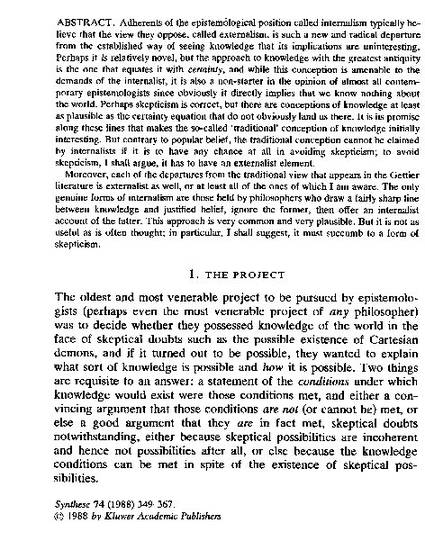
Adherents of the epistemological position called internalism typically believe that the view they oppose, called externalism, is such a new and radical departure from the established way of seeing knowledge that its implications are uninteresting. Perhaps it is relatively novel, but the approach to knowledge with the greatest antiquity is the one that equates it with certainty, and while this conception is amenable to the demands of the internalist, it is also a non-starter in the opinion of almost all contemporary epistemologists since obviously it directly implies that we know nothing about the world. Perhaps skepticism is correct, but there are conceptions of knowledge at least as plausible as the certainty equation that do not obviously land us there. It is its promise along these lines that makes the so-called ‘traditional’ conception of knowledge initially interesting. But contrary to popular belief, the traditional conception cannot be claimed by internalists if it is to have any chance at all in avoiding skepticism; to avoid skepticism, I shall argue, it has to have an externalist element.
Moreover, each of the departures from the traditional view that appears in the Gettier literature is externalist as well, or at least all of the ones of which I am aware. The only genuine forms of internalism are those held by philosophers who draw a fairly sharp line between knowledge and justified belief, ignore the former, then offer an internalist account of the latter. This approach is very common and very plausible. But it is not as useful as is often thought; in particular, I shall suggest, it must succumb to a form of skepticism.
